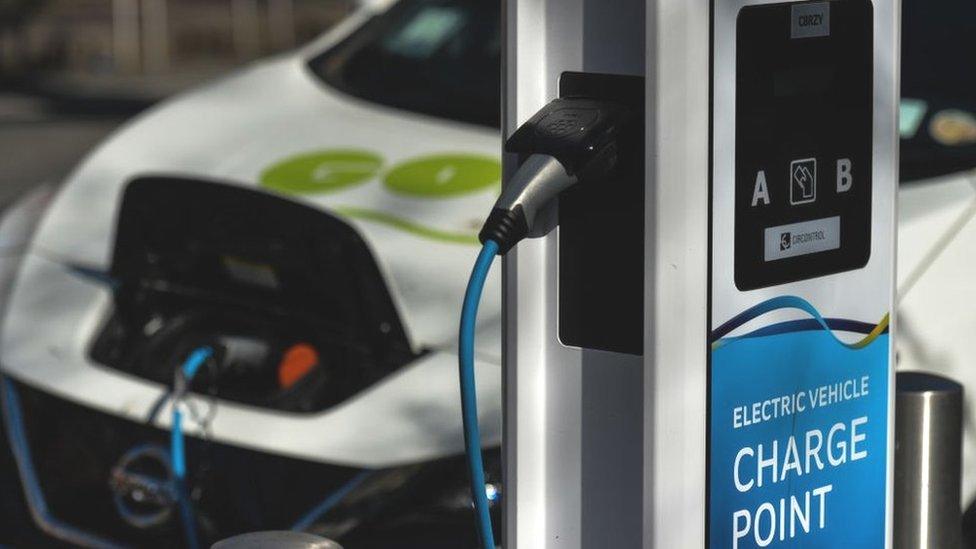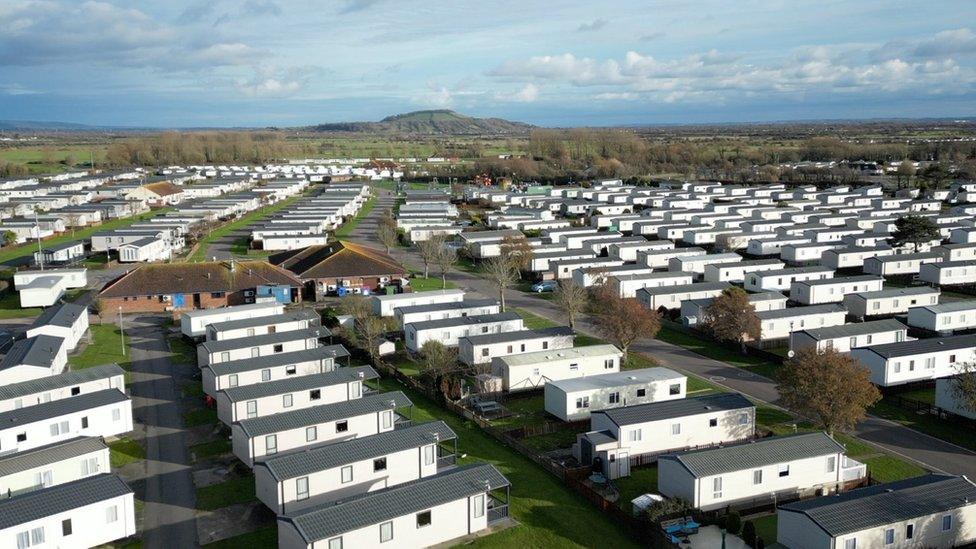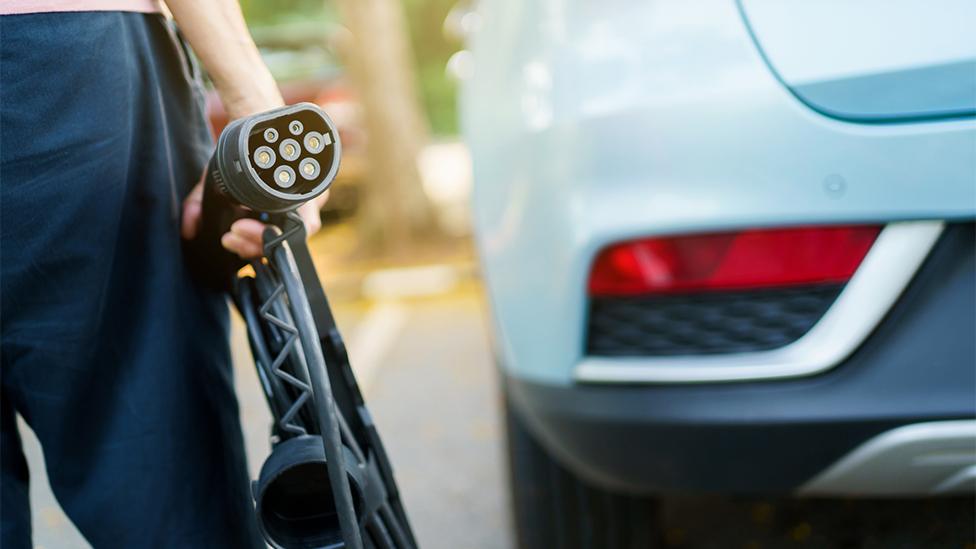Northern Ireland electric car users to pay for street charging
- Published

The move has been welcomed by the Electric Vehicle Association of Northern Ireland
Electric vehicle drivers in Northern Ireland will have to pay to charge their cars on the street from the end of April.
An overstay fee will also be introduced, to ensure charging points are available by preventing long stays.
It is part of an upgrade of the charging network by ESB, which runs 319 charge points in Northern Ireland.
The number of rapid chargers will be doubled as will the speed they work at.
It is part of a £10m investment, in part funded by the UK government's Levelling Up Fund.
Drivers will have to sign up for either a pay-as-you-go option or membership by registering online.
Membership will cost £5 per month, with members getting a discounted charging rate.
ESB said the cost of charging will depend on how rapid the charger is, but a standard charger will be 49p per kWh (kilowatt hour) for pay-as-you-go customers and 46p for members.
The move, which will be introduced on 26 April, has been welcomed by the Electric Vehicle Association of Northern Ireland.
'We need the network to expand'
The head of ESB eCars, John Byrne, said it needed to ensure there was a "reliable, accessible, Northern Ireland-wide public charging network".
"Pay for use for public charging is now the norm across Great Britain and Ireland. This is a natural step in ensuring we improve the network and maintain high standards for electric vehicle (EV) drivers into the future," he added.
Mark McCall, from the Electric Vehicle Association Northern Ireland, said it was a welcome start.
"There are more electric vehicles on the road every day, so you know the network, as it is at the moment, is not much bigger than it was 10 years ago. So we need to see that network expand."
"We've definitely turned the corner here, but we need to keep pace and keep the change going forward," he added.
Network expansion recommended
Northern Ireland has the lowest rates of public charging devices for EVs in the UK.
Data released from the UK's Department for Transport found there were 19 charging devices per 100,000 people.
Mr McCall previously said demand for electric vehicle chargers has been outstripping supply for years.
The Department for Infrastructure set up a taskforce to help set out a clear action plan for Northern Ireland's electric vehicle infrastructure requirements.
In an action plan published last November,, external the task force recommended a focus on developing a rapid-charge network to facilitate 1,000 chargers by 2025 and to ensure no resident is more than 25 miles from a rapid charger.
Related topics
- Published4 February 2023

- Published12 March 2023

- Published26 January 2023
